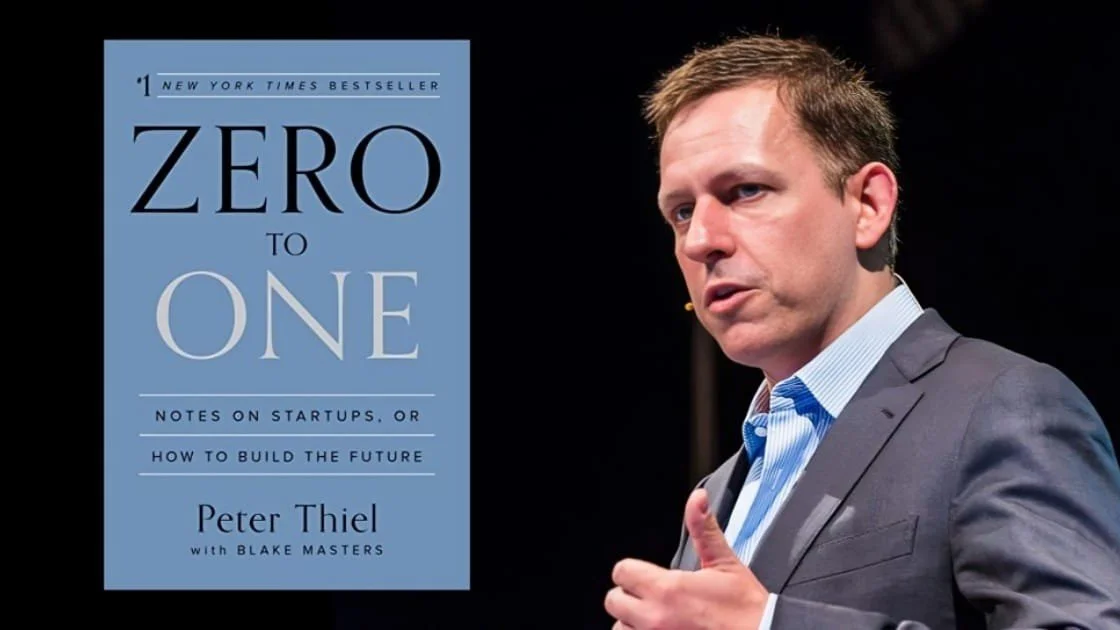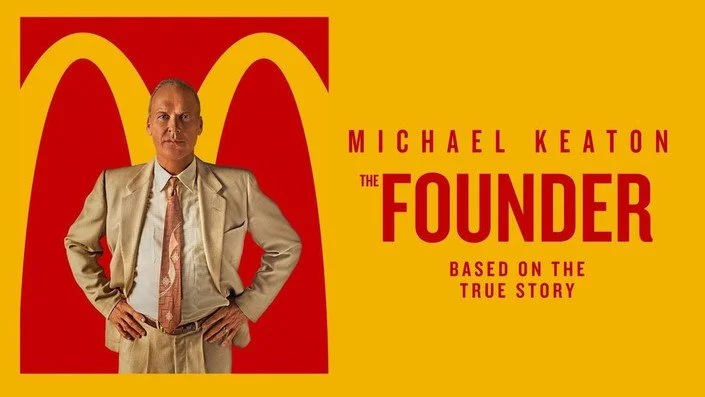Peter Thiel - Zero to One
How I Came Across Peter Thiel
I first came across Peter Thiel while trying to understand how startups actually work.
At the time, I was just exploring business ideas — curious, but fairly naïve. I didn’t know where to begin, so I ended up down a YouTube rabbit hole watching talks from Y Combinator — the accelerator that helped launch companies like Airbnb and Stripe.
One video stood out: “Competition Is for Losers.”
The title caught my attention straight away — partly because it sounded so blunt, but mostly because it went against everything I’d been taught. Competition was supposed to be healthy, even necessary.
Thiel completely flipped that idea.
His message was simple but provocative—an idea isn’t truly valuable unless you can dominate a part of the market. If you’re building something that already exists or fighting for scraps in a crowded space, you’re not innovating. You’re just competing.
What made it powerful wasn’t only his logic but also his track record.
He’d lived through the chaos of PayPal and later built Palantir—both category-defining companies that began as small, contrarian bets. So when he says, ‘Don’t compete—dominate’, it’s not theory. It’s hard-earned experience.
That talk led me to his book Zero to One, which I later listened to on Audible, followed by a few of his Stanford lectures.
The phrase “Zero to One” stuck with me — such a concise way to describe genuine creation: going from nothing to something, rather than from something to more of the same.
This post isn’t about launching a startup.
It’s about learning to think differently when you’re building anything meaningful — to see the world not as it is, but as it could be if you started from zero.
From Zero to One — What It Really Means
When I studied economics and business at A-Level, we were taught that competition drives efficiency — economies of scale, marginal gains, all the textbook ideas.
The logic was simple: if everyone competes, society wins.
Thiel flips that completely.
He argues that real progress doesn’t come from competition — it comes from creation. From moving the world forward in a way it hasn’t been moved before.
You can’t just make an app because everyone else is making one.
You can’t build a website and expect influence because it worked for someone else.
Most markets today are saturated copies of each other — endless noise fighting for the same slice of attention.
Thiel’s Zero to One question forces you to stop and ask:
“Am I building something truly new — or just another version of what already exists?”
If you genuinely want to create value — for yourself and for others — you have to rethink what innovation means. It’s not about being first; it’s about being original.
I learnt that the hard way.
My first attempt at a business was a small clothing brand — mostly because it felt like the easiest way to “start something”. Six months later, I gave up. The space was crowded, my heart wasn’t in it, and I realised I wasn’t solving a real problem.
It wasn’t a zero to one idea; it was a one-to-many imitation.
That moment hit harder than I expected. It wasn’t failure — it was clarity.
Innovation, I realised, isn’t about hustle.
It’s about insight.
Lessons from PayPal — Conviction Through Chaos
The story of PayPal surprised me more than I expected.
I hadn’t realised how chaotic those early days were — constant fraud attempts, lawsuits, technical breakdowns, and near-bankruptcy moments. I also didn’t know that Elon Musk joined later in the process.
Thiel often describes that period as controlled chaos — yet what kept the team going was conviction.
They believed in what they were building, even when no one else did.
He emphasises a principle I find powerful: you have to hold your vision steady, even when people doubt it — as long as you’ve done the work, understood the problem, and know exactly why your idea should exist.
That conviction matters.
But so does the mission. Thiel surrounded himself with people driven by purpose, not just profit — and in his view, that’s what separates teams that survive chaos from those that collapse under it.
I can’t claim to have lived anything like that yet, but the lesson stayed with me. It’s something I want to carry into my own projects.
After my short-lived clothing brand, I shifted focus to game design. I became fascinated by how creative worlds are built — watching talks from designers like Sid Meier and Ken Levine, studying storytelling systems, and even learning C++ to build small prototypes.
For a few months, I was completely absorbed. But over time, I realised it was moving too slowly for me. This was back in 2023 — before AI coding tools became what they are now — and I found myself spending more time debugging than designing.
Still, that period taught me a lot about iteration and belief.
Like the PayPal team, I learned that momentum and conviction matter — you can’t fake passion. Once I knew I wasn’t fully invested, I made the call to move on and redirect that energy somewhere it could grow.
The Monopoly Mindset
Out of everything Peter Thiel talks about, the monopoly mindset was the biggest takeaway for me.
At first, it almost sounds immoral — like you’re supposed to crush the competition.
But the more I listened, the more I realised what he really meant: if you want to survive — and last — you have to own your niche.
Think of Microsoft in the ’90s, when regulators had to step in because of its dominance.
Or Amazon, redefining retail from the ground up.
SpaceX, proving rockets could be reusable and owning private launch capability.
Facebook, shaping social media for over a decade.
Each of these companies found a corner of the world that no one truly controlled and built a monopoly by doing it better, faster, and with deeper conviction.
Thiel argues that competition actually destroys value.
When companies fight endlessly for the same market share, they burn energy on survival instead of creation.
Monopolies, by contrast, have breathing room — the freedom to think long-term and innovate.
That idea resonated with me when I’d just moved to London — wanting to be surrounded by energy and opportunity, not just noise.
Around that time, I was watching SpaceX’s Starship tests: failure after failure, then gradual proof of concept. It reminded me that progress isn’t about beating others; it’s about changing the game entirely.
You don’t dominate by being disruptive for the sake of it.
You dominate by expanding the pie — by going where others aren’t looking, creating a new market, and opening doors for others to build within the ecosystem you helped start.
It’s not about greed. It’s about focus — carving out a space so distinct that your work becomes the foundation for others to build upon.
That reframed how I think about success:
it’s not about shouting louder in a crowded room.
It’s about building your own room altogether.
Thiel’s 7 Questions for Builders
Thiel breaks down what separates great ideas from forgettable ones.
He calls them the seven questions every business must answer — but really, they’re seven questions anyone trying to build something new should think about:
The Engineering Question – Can you create breakthrough technology instead of incremental improvements?
The Timing Question – Is now the right time to start your business?
The Monopoly Question – Are you starting with a big share of a small market?
The People Question – Do you have the right team?
The Distribution Question – Do you have a way to deliver your product, not just build it?
The Durability Question – Will your market position be defensible in 10 or 20 years?
The Secret Question – Have you identified a unique opportunity that others don’t see?
The Founder’s Paradox — Believing When No One Else Does
The more I listened to Peter Thiel, the more I understood what he calls the founder’s paradox — the tension between being absolutely certain of your vision while being constantly doubted by everyone around you.
It’s not easy.
It’s taken me years of trying different things—history, law, clothing, game design, experimenting—just to begin to understand what I actually want to do. There’s no straight path; you collect fragments of insight until they start forming a picture.
Over time, that process built something deeper — a philosophical mindset.
You realise that if you want to create anything meaningful, you have to believe in your vision long before anyone else can see it. That belief isn’t arrogance; it’s endurance.
People will say no. Some won’t believe. Others will quietly dismiss you.
But every founder Thiel talks about faced the same thing. They weren’t free from doubt — they just refused to let it decide their story.
For me, that idea isn’t just about business — it’s about life.
Your vision becomes your reputation. What you build, how you carry yourself, the ideas you defend — they all add up to the life you’re creating. And when the noise gets loud, you have to be ready to stand by it.
That’s the paradox: staying open-minded enough to keep learning, yet stubborn enough to keep believing.
The Future Is Built, Not Predicted
Thiel’s final message is simple but powerful: progress isn’t fate — it’s design.
The future belongs to people who create it deliberately, not to those who wait for it to unfold.
He calls this idea definite optimism — believing in a future that’s both good and specific.
That resonated with me deeply, because I’ve learned that you don’t stumble into opportunity — you build the conditions for it.
You create your own luck by showing up, learning, reaching out, and forcing momentum when nothing seems to move.
When I started following SpaceX, it wasn’t just the technology that fascinated me — it was the mindset. Watching rockets land after dozens of failed attempts, seeing reusability go from dream to proof of concept — it made me believe that impossible things can be engineered into reality.
That same mindset pushed me to attend fintech and space conferences, to talk to people, and to explore where the real problems lie. It showed me that vision isn’t just about imagination — it’s about participation.
Thiel talks about “shapers” — people who don’t just react to the world, but reshape it.
Coming from where I grew up, I’ve realised that anyone can do that. You don’t need permission — just direction, conviction, and the patience to keep building.
That’s what Zero to One taught me: the future isn’t something to predict.
It’s something to build.
Closing Reflection — Thinking From Zero
Looking back, Zero to One wasn’t just a book I read or a talk I watched — it was a shift in perspective.
It changed how I see creation, risk, and the idea of value itself.
Peter Thiel’s message isn’t about chasing the next big startup trend.
It’s about asking deeper questions:
“What do you know to be true that others overlook?
What are you willing to commit to, even when no one else believes it yet?”
Those questions stay with me every time I begin something new.
They remind me that originality takes courage, conviction grows through time, and clarity often comes only after failure.
I don’t see Zero to One as a business manual anymore — I see it as a mindset.
A reminder that progress, in any form, begins with an idea that looks impossible until it isn’t.
And maybe that’s what it really means to think from zero —
to stop waiting for permission,
to start shaping what comes next,
and to build something that only you can see.





